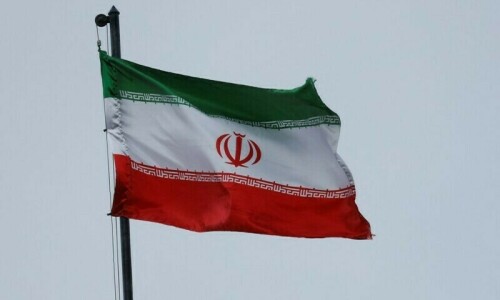ISLAMABAD: In an apparent deviation from the law, the State Bank of Pakistan (SBP) is reported to have extended Rs239 billion credit to the PMLN-led coalition government in January-February to meet ballooning debt servicing requirements of the domestic commercial banks.
Under the State Bank of Pakistan Act amended in 2022 on the dictation of the International Monetary Fund (IMF), government borrowing from the central bank is prohibited. Section 9C of the law says: “Prohibition on the Government borrowing.—(1) The Bank shall not extend any direct credits to or guarantee any obligations of the Government, or any government-owned entity or any other public entity”.
An Islamabad-based economic think tank — Prime Institute (PI) — in its latest quarterly report said the government had borrowed Rs239bn from the SBP in January and February of this year as the country’s fiscal deficit overshoot amid excessive debt servicing cost of the domestic debt.
It said an excessive government footprint in the economy and public spending continued to fuel the economic crisis.
The fiscal deficit clocked in at Rs1.87 trillion or 2.3pc of GDP in July-February where expenditures stood at Rs5tr and revenues were Rs3tr. “Therefore, the government borrowed Rs1.39tr in first two months of the third quarter of FY23 out of which Rs239bn was from the State Bank and Rs1.15tr from commercial banks”, said the report.
As such, the stock of SBP credit to the government went up from Rs5.260tr in January to Rs5.597tr in February. The stock stood at Rs4.877tr in February 2022 – an increase of Rs720bn in a year.
Resultantly, the borrowing for budgetary needs led to a build-up of the public debt of more than Rs54.9tr, PI noted whose chief executive said the SBP credit was used for debt servicing to the domestic banking industry.
The report highlighted that Pakistan’s economic challenges result from deterioration in political stability in the country and reluctance of the governments to carry out reforms adding that the pillars of economic prosperity were limited government footprint, spending restraints, low tax rates, reduction of trade barriers, establish sound money and privatise loss-making state-owned enterprises.
It said the government’s restrictions on imports brought down the burgeoning current account deficit (CAD) to $3.8bn in July-February from $12bn last year, it also contributed to a halt in the large-scale manufacturing (LSM) where the output declined by 5.56pc in eight months compared to last year. This slowdown contributed to inflation and prospects of further hikes in the coming months.
The slowdown in the LSM also resulted from a decline in the borrowing of the private sector by Rs219bn in the first two months of the third quarter of FY23 and total borrowing stood at Rs7.4tr. The borrowing of the private sector under the export processing scheme also declined by Rs7bn owing to a 300 basis points increase in the policy rate and a halt in operations due to the unavailability of raw materials.
The report argued that Pakistan’s taxation system was regressive with more reliance on indirect taxes because the government had remained unsuccessful to broaden the tax base and people were reluctant due to exorbitant rates of taxes.
The distortions emanating from high taxes can be represented by the fact the sale of smuggled cigarettes in March increased by more than 30pc and sales of legitimate cigarettes fell by over 60pc after the increase of federal excise duty in the supplementary finance bill 2023.
The adoption of a market-based exchange rate promoted some stability in the foreign exchange market, but the weak economic fundamentals continue to keep the currency precarious.
However, the debt servicing obligations and import payments kept the pressure on the local currency and exchange rate in the third quarter of FY23 depreciated by 25pc from Rs225 at the end of December 2022 to Rs281 at the end of March 2023. Moreover, the foreign exchange reserves declined from $5.6bn to $4.2bn at the end of March.
The report said the governments in Pakistan remained unsuccessful to carry out reforms due to political instability and reluctance due to a potential fall in the political capital. However, the current political divide has deeply fragmented the masses and any consensus on key policy reforms remains elusive.
“The government’s continuous deviation from the agreed path with the IMF has resulted in the cessation of the programme and significant delay in the completion of the 9th review”, it said.
As result, despite the completion of prerequisites such as a market-based exchange rate, hikes in utility prices and a mini-budget, the government could not restore confidence and IMF is currently waiting for confirmation from friendly countries for their previously agreed financial support.
Published in Dawn, April 20th, 2023















































